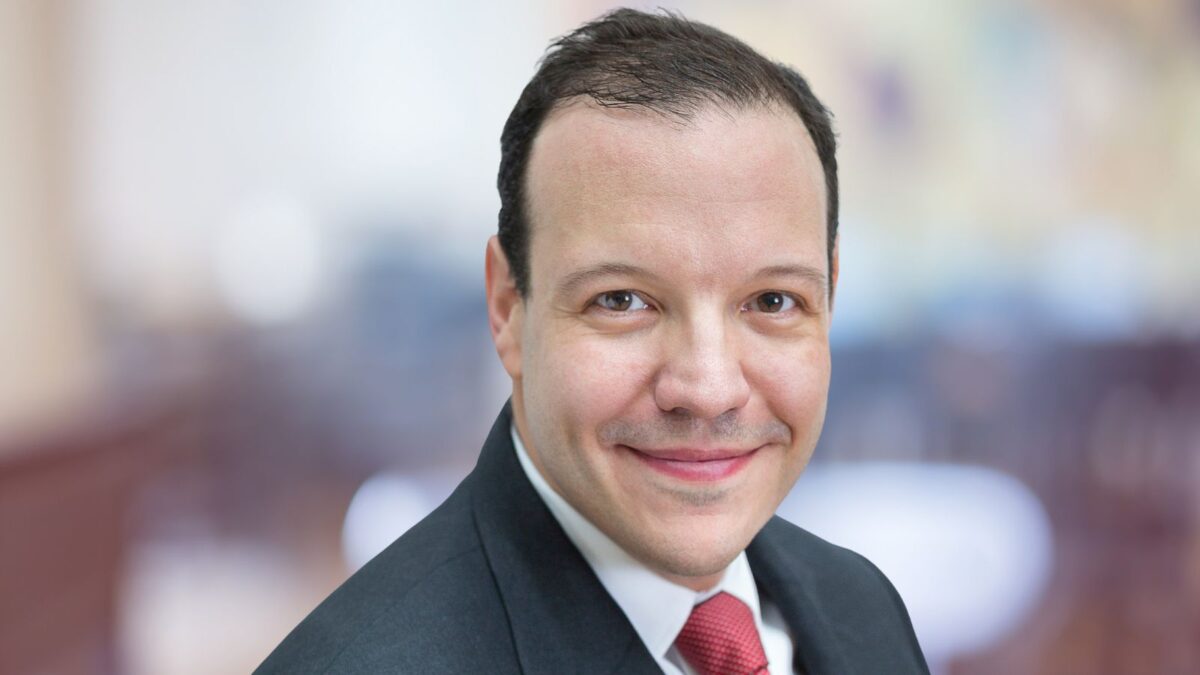Why there’s no easy answer for the biggest debate in markets
Earnings notwithstanding, everybody that’s been making buckets of money out of the big tech companies has pretty much been investing for their future growth. Now they need to deliver it – and that’s a key uncertainty for what may or may not be a tech revolution, says Jonathan Rawicz, portfolio manager for EFG Asset Management’s New Capital Global Equity Conviction Fund.
“The biggest debate within the market is all about AI,” Rawicz tells ISN. “What you’ve had happen is a huge rise in capital investment into AI by the large cloud providers, who are all trying to kit themselves out to take advantage of AI growth, but the market is pretty skeptical about whether they’re going to get a return on that investment.
“We’re at a phase we’re they’re saying, ‘show us what you’re delivering for the money you’re spending’ and that’s going to play out over the next couple of quarters. We’re either going to see reasonable traction in terms of revenue growth, and the market will keep on going, or we’re going to get a disappointment.”
To Rawicz, that money doesn’t look like it’s being wasted. The most obvious benefit has gone to the big digital advertising companies, which are using AI to target their ads much more effectively. But he’s also looking at companies that are supplying the AI chain – it’s going to need more computer chips, and more computing power – or companies that have high quality data that are well-positioned to turn that data into an AI model.
But large language models still aren’t good with numbers – in simple terms, they work by accurately predicting the next word in a communication, while maths problems have definitive answers – and so aren’t as useful when applied to them (ed: though they are likely more useful than this journalist). So will AI truly be transformational, the promised ‘fourth industrial revolution’? Or will its biggest effects be more subtle?
“The honest answer is that nobody knows,”: Rawicz says. “But the right way to think about it is whether you could imagine Uber would exist when you had a dial-up modem… We’re in the dial-up modem phase; we’re in the PalmPilot phase.”
We likely won’t know what comes next until it’s here. But right now the AI boom is having tricky implications for portfolio construction.
“The market is so concentrated and individual stocks are becoming so large in the benchmark that they aren’t able to own enough of those stocks to keep up with it. If those large stocks keep getting bigger – and fund managers in most cases can’t have more than 10 per cent of their portfolio in a single stock – they’re forced to hit their limit… To outperform a large company going up, you have to find a lot of small companies that you get absolutely right. There is an element of crowding into these companies in order to not underperform.”
That means risk goes up for active and passive managers alike – and, in some ways, even more so for passive managers.
“If you have this herding effect into these large stocks your passive portfolio has a huge concentration if it owns the index. As an active manager you can at least look at a stock like Nvidia, which may be overpriced, and choose not to own it.”
Though not many do. Depriving oneself of the biggest drivers of performance is a headache few would want to endure when there are more risks to global markets – and the world – than ever before.
“You never know what’s going to happen… to be a good fund manager you have to know how to react when an unknown unknown arises,” Rawicz says. “A really good way to manage a portfolio is to have a playbook; to say I don’t know if this will happen or could happen, but how would I react to it? When the situation arises, you don’t have to wait too long to make a decision to protect the capital.”
But there are four big “known unknowns”, Rawicz says: will AI generate revenue? Will the Middle-East explode? Who will be the next US president, and will they get both Congress and Senate? And what will the geopolitical situation be in Taiwan and Ukraine?
“You can try and hedge some of these things. When it comes to geopolitical risk you can own some energy and some gold; when it gets ugly it disrupts oil supplies and people go into safe havens… but if nothing really kicks off there’ll be an opportunity cost for buying that insurance; you won’t be in something else that does well. You can hedge things, but you can’t predict what will happen.”











